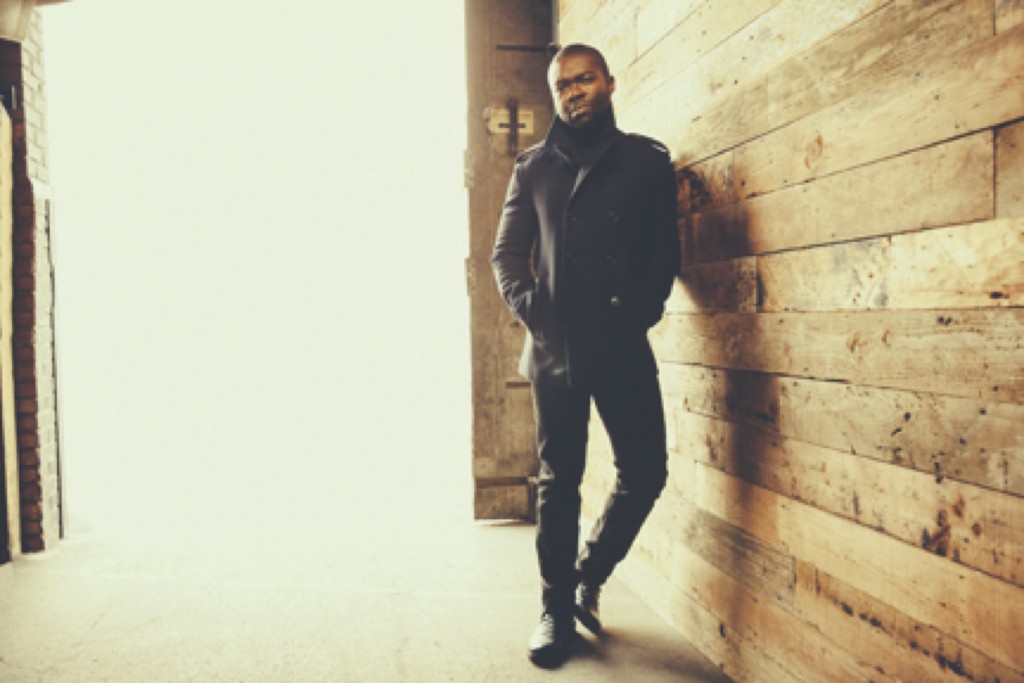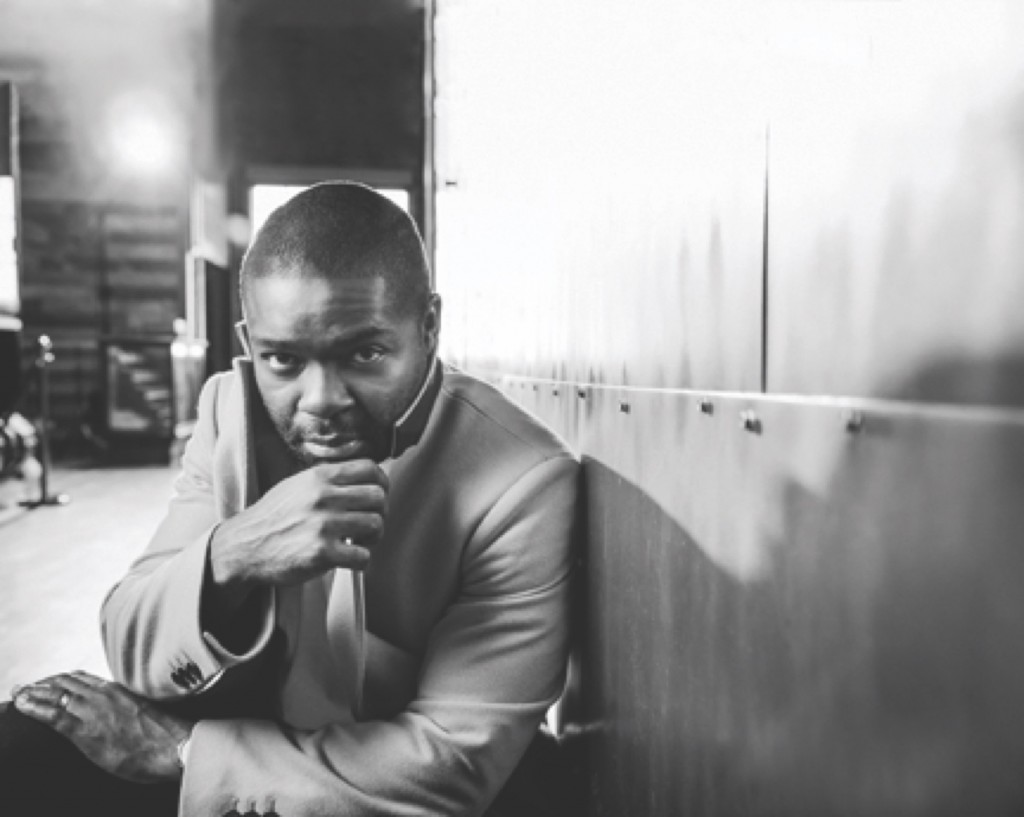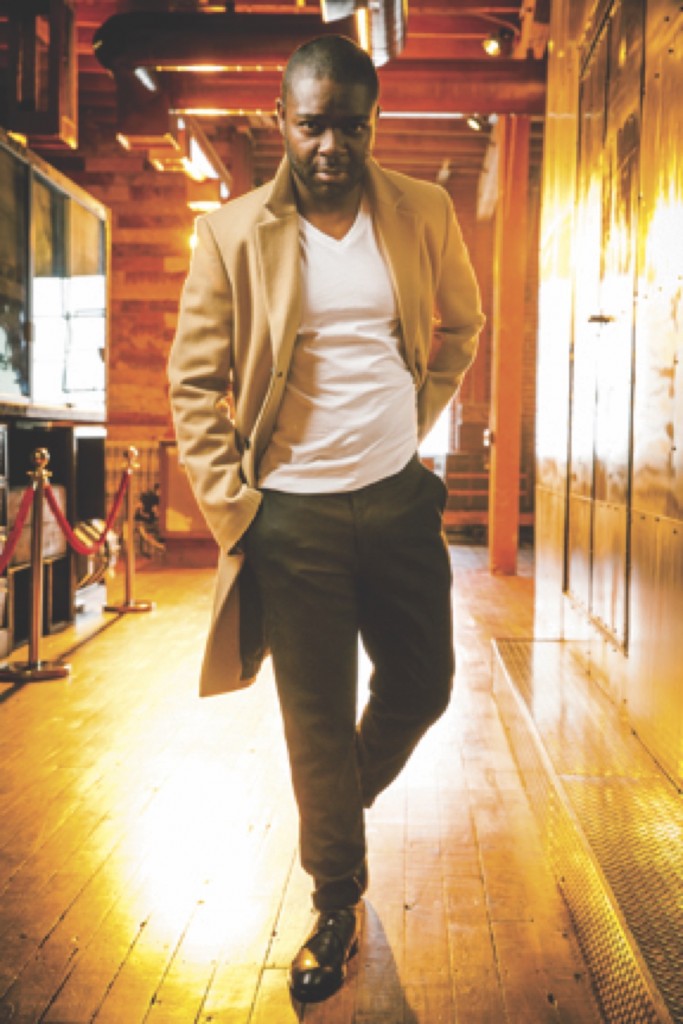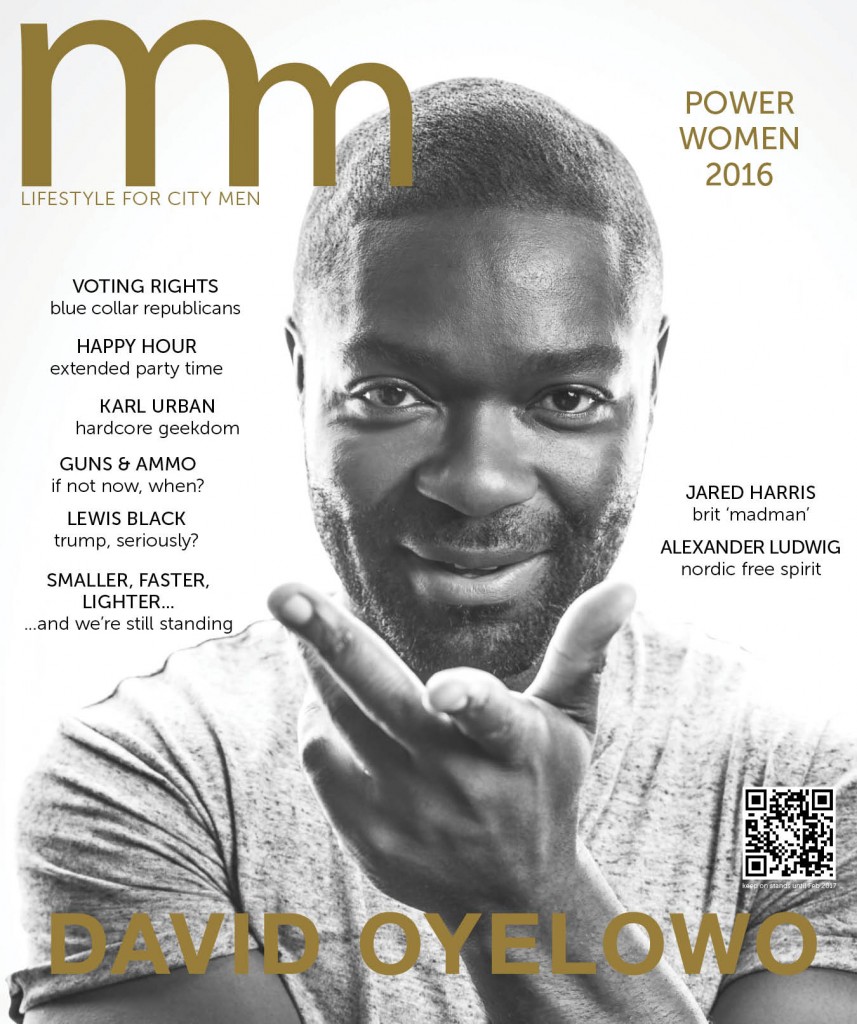
Queen of Katwe is especially poignant as the father of a daughter. “I think of it as a love letter to her, an indicator, a beacon to her, that she should and could go on to fulfill every ounce of potential that she has. And I as her father, am going to do everything that I can to help her realize that, knowing that we live in a world where sexism is very real, and a cultural bias is rife in terms of what society thinks should or be able to achieve.”
By Zoe Stagg Photographer: Jim Wright
“Greatness can be found anywhere and everywhere.” David Oyelowo is on a quiet crusade. “There are young girls brimming with potential who are being marginalized everywhere,” his British accent with the pulsing undercurrent of Nigerian lilt is tidy. It makes even the most impassioned sentiment sound utterly reasonable — especially when he’s speaking the truth. “Young girls that are eager for whatever ever reason, they are being marginalized because they are female or because they are poverty stricken, or they are in foster care, or they’ve been sex trafficked or their parents have abandoned them.” It’s a problem that sounds far away, but he insists it’s much closer than people want to admit. “I would argue that it’s not just in Africa and what we would call third world countries.”
Oyelowo’s most recent project calls attention to the struggle half the world faces, in Queen of Katwe. Though he admits it at first blush it sounds like a story of fancy, the based-on-a-true tale is ferociously feminist. In it, Disney has made a “royal” heroine without a single ballgown, prince, or tiara. Instead, Phiona Mutesi wins a crown of a different sort, a title at the World Chess Olympiads. It’s a Disney movie, but the message is far from child’s play. “It has all of the things that for me as an artist, as a father to a daughter, as a man of African descent, there’s just so many things about it that ticked my boxes. Then, the role itself is about this guy that very self-sacrificially spots this talent and fights very hard for her to achieve everything that she could. That’s what happened in my life people coming in and helping me get to places that I never thought I could get to, so being able to portray that in a true story is what grabbed my attention.”
Married to fellow actor Jessica Oyelowo for almost 20 years, the couple has four kids. They’ve grown up around the entertainment business, but Oyelowo still considers the projects he takes from a father’s point of view. Queen of Katwe is especially poignant as the father of a daughter. “I think of it as a love letter to her, an indicator, a beacon to her, that she should and could go on to fulfill every ounce of potential that she has. And I as her father, am going to do everything that I can to help her realize that, knowing that we live in a world where sexism is very real, and a cultural bias is rife in terms of what society thinks should or be able to achieve.” Where some use the pulpit of their celebrity to champion causes outside of their work, to Oyelowo, his work is his message. “I’ve always believed in the power of film to have cultural impact. My hope is that not only for girls in Africa or America but that girls everywhere can see a film like this, and be awakened. To know that I should be allowed to do anything that I want to do especially if I have the talent to do it. I shouldn’t be marginalized because of my gender.”
He was born in England to Nigerian parents, who saw their hard work as a foundation for their own children to achieve more. “For my parents, being Nigerian, academia is everything. I’m the eldest of three sons and my parents clearly stated that they wanted a doctor, a lawyer, and an engineer.” Oyelowo was supposed to be winning cases instead of Golden Globe nominations. “I was also set up to go to be the lawyer, I already got into Oxford Brooks University to do just that, but I had just fallen in love with plays. As a teenager, I never thought of it as a means of earning a living and or being part of my life.” An involved teacher saw talent and encouraged him to pursue more, a theme reflected back in Katwe — a similarity he notes, fueling his quest to tell stories that encourage others to find greatness wherever they are. It’s a big job, and one he’s taken on in roles in projects from The Butler to Selma.
But the business of being Oyelowo is complex enough. He identifies as British, Nigerian, and now as an American citizen. With so many places he feels comfortable, he’s always pushing the boundaries in the roles he takes. “I am on a quest to become the best actor that I can possibly be, and I know the way to do that is to put myself in uncomfortable situations.” A graduate of the London Academy of Music and Dramatic Art, he uses his personal arsenal and formal training to push himself. “I know for myself theater is such an artistic endeavor, but it gives you so much in your kit bag regarding tools whether its for radio play, television, or any story telling outlet. If you start with theater you’re going to be in very good shape.” His upcoming projects reflect that diversity and drive. A United Kingdom, opened at the London Film Festival, is set in Botswana, and isn’t about any of the genocide child soldiers or dictators that usual steal plots to films set in Africa. Instead, it’s a jazz-age love story, a woman from London falling in love with Oyelowo’s prince. And while his career is sky high, he hits action in space with God Particle, a sci-fi thriller where the planet disappears, produced by J.J. Abrams.
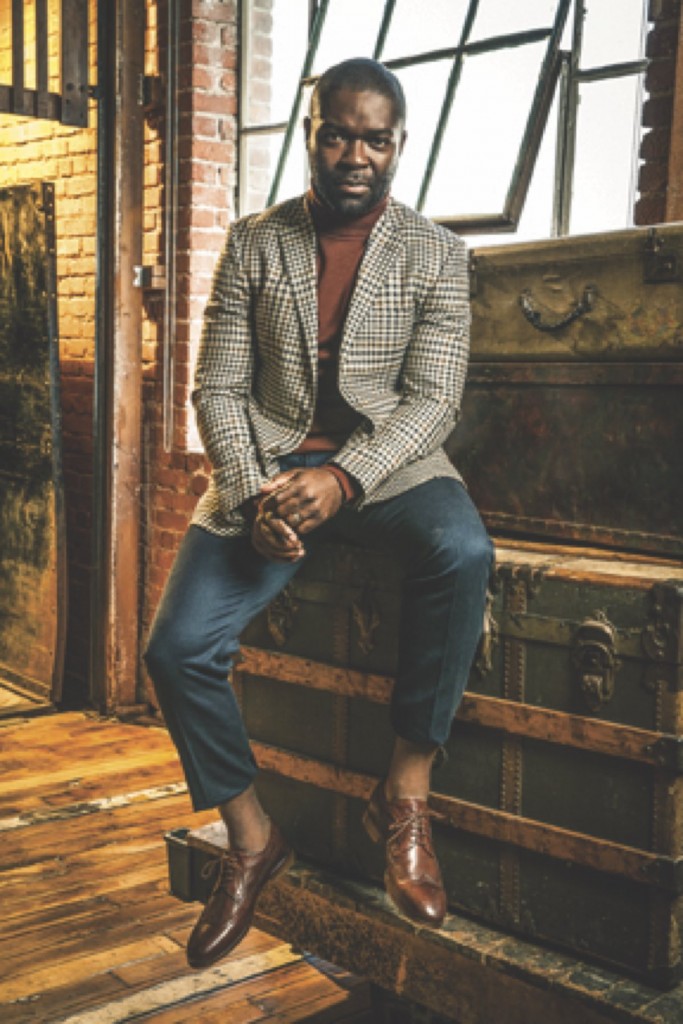
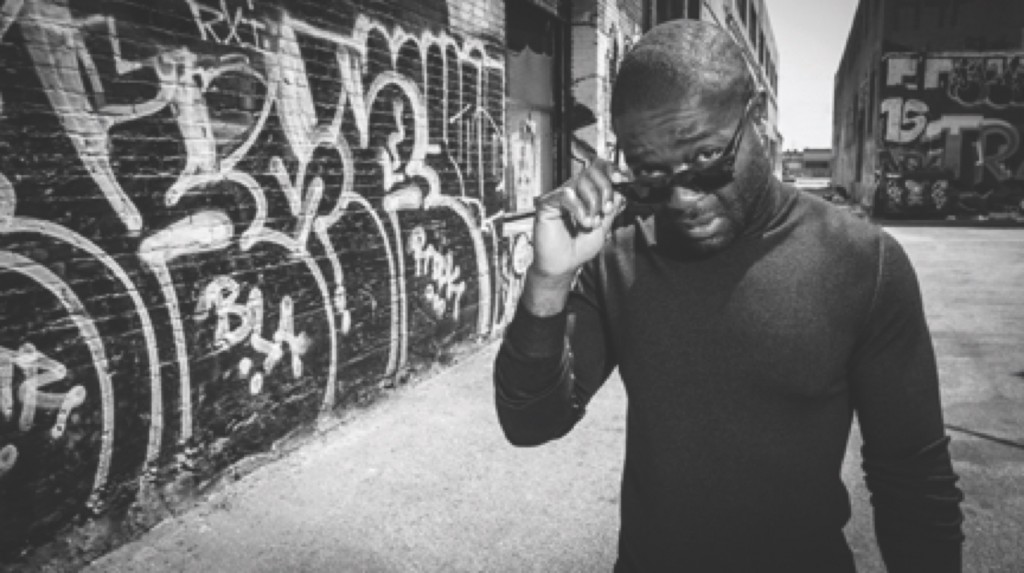
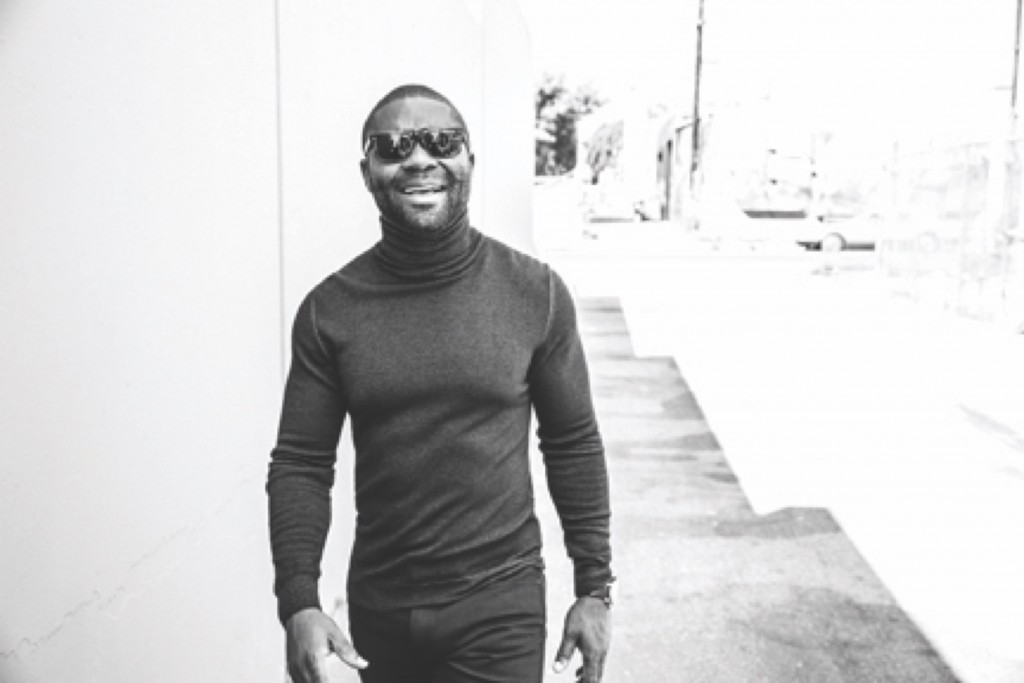
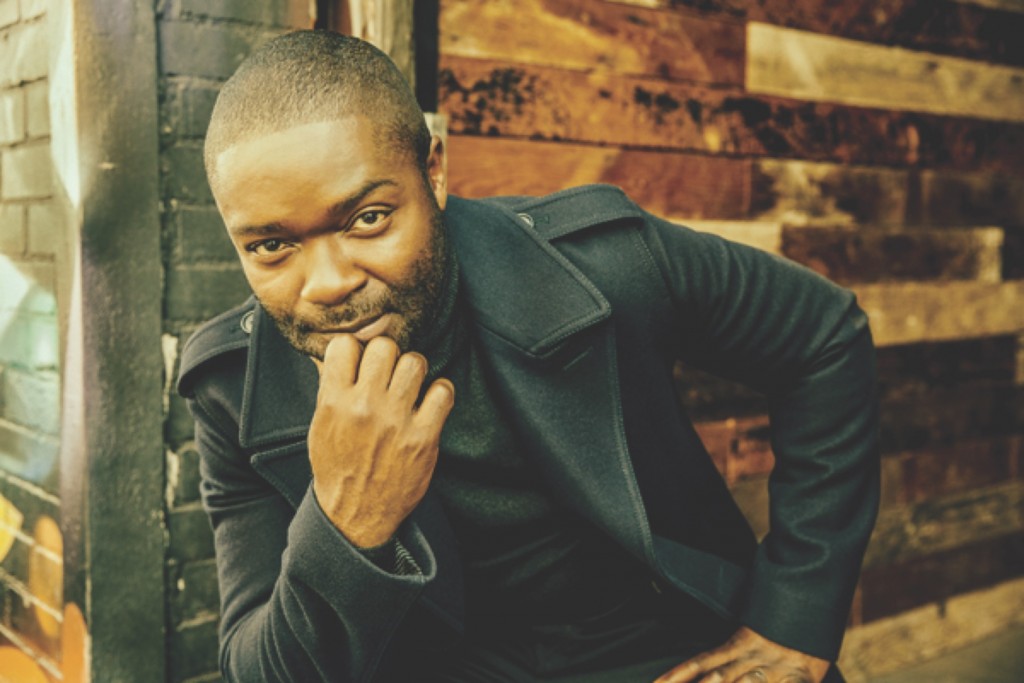
But down here on earth, as a citizen of the world, he has a stake in the global binary. Brexit or Remain? Democrat or Republican? The choice matters less than exercising the right and obligation to make it. After starring in Selma, Oyelowo became a U.S. citizen. “It just sounded hypocritical to have made a life and to continue to make a life in America without the ability to vote. I’m a big believer that if you’re going to be part of a society you should take up the opportunity to have a say in that society.” As a champion of the process, he won’t elaborate on what his say might be — just that it’s more important than it’s ever been. “We have a very polarizing election coming up, we want to put our stamp on what we feel would be the right side of our fence, and not just be at the behest of every else decision.”
His brother still lives in Britain, and the country’s own recent schism affected him — especially as children of immigrants. “One of the biggest heartbreaks I’ve had since Brexit is him telling that all of a sudden there are people in the street or under their breath telling him to go back where he came from. It’s inconceivable that was happening. Those slurs were prominent when my dad moved to the UK in the 60’s and 70’s and it’s back because of a nationalist agenda.” Just as Oyelowo sees telling stories on screen as an important influence, sharing his own stings just as sharply. His acting is his art, but it’s almost as if who he is, is also his activism. “It’s a heartbreak, but it’s with us. This is also what informs the work what I do.”
What we can’t do, is stop listening, turn ourselves off from experiences different from our own. “I feel that prejudice is propagated through ignorance. Fear is what kicks in and when fear drives us to push those that scare us out. In making the kind of films that I gravitate towards, hopefully, what is engendered is empathy and go toward the humanity and universality of who we are as human beings.”
And that, is a story worth telling.
grooming by Christine Nelli with the Wall Group using La Mer?
First shot:
Brown Houndstooth blazer-Etro
Brown turtle neck-Sandro
Blue pant-Etro
Brown shoes- Kurt Geiger
Mont Blanc watch
Second shot:
Jeans-Citizens of humanity
Tee- life after denim
Black boot-Fiorentini & Baker
Third shot:
Brown coat-Sandro
White shirt-Everlane
Black pants-Vince|
Black dress shoe-TODS
Mont Blanc watch
Fourth shot:
Black turtle neck-etro
Black jeans-LEVIS
Black boot-Fiorentini & Baker
Navy coat-Dior
Tiffany Tucker Stylist
Assistants Wendi & Nicole

